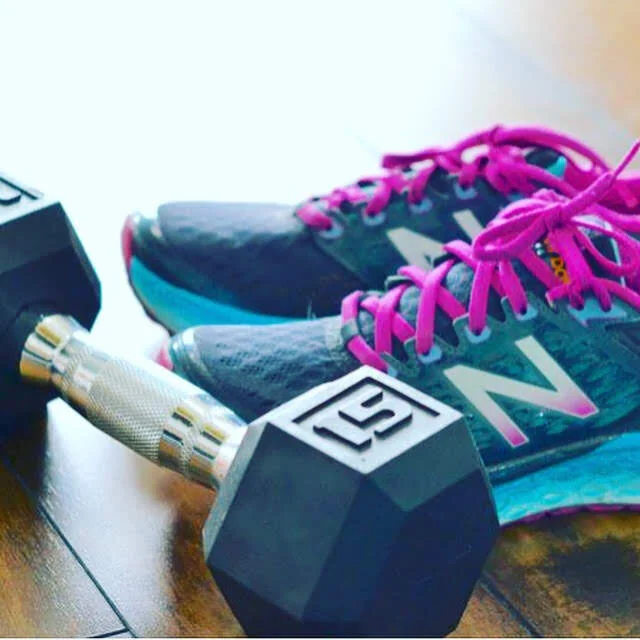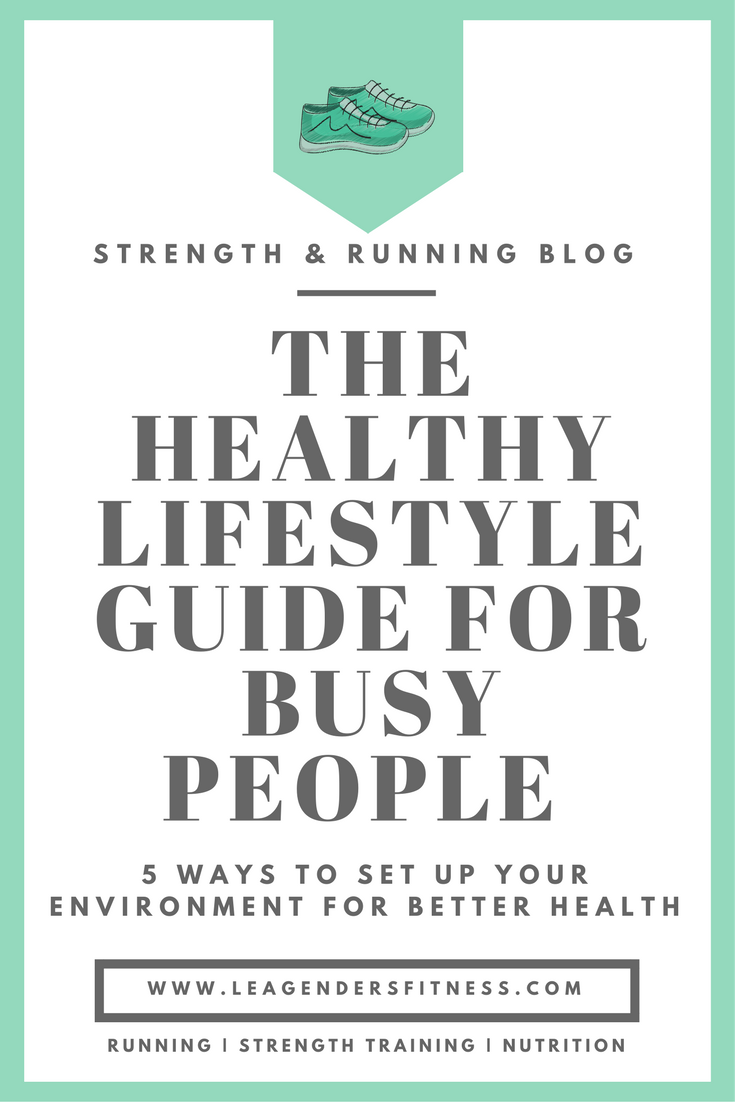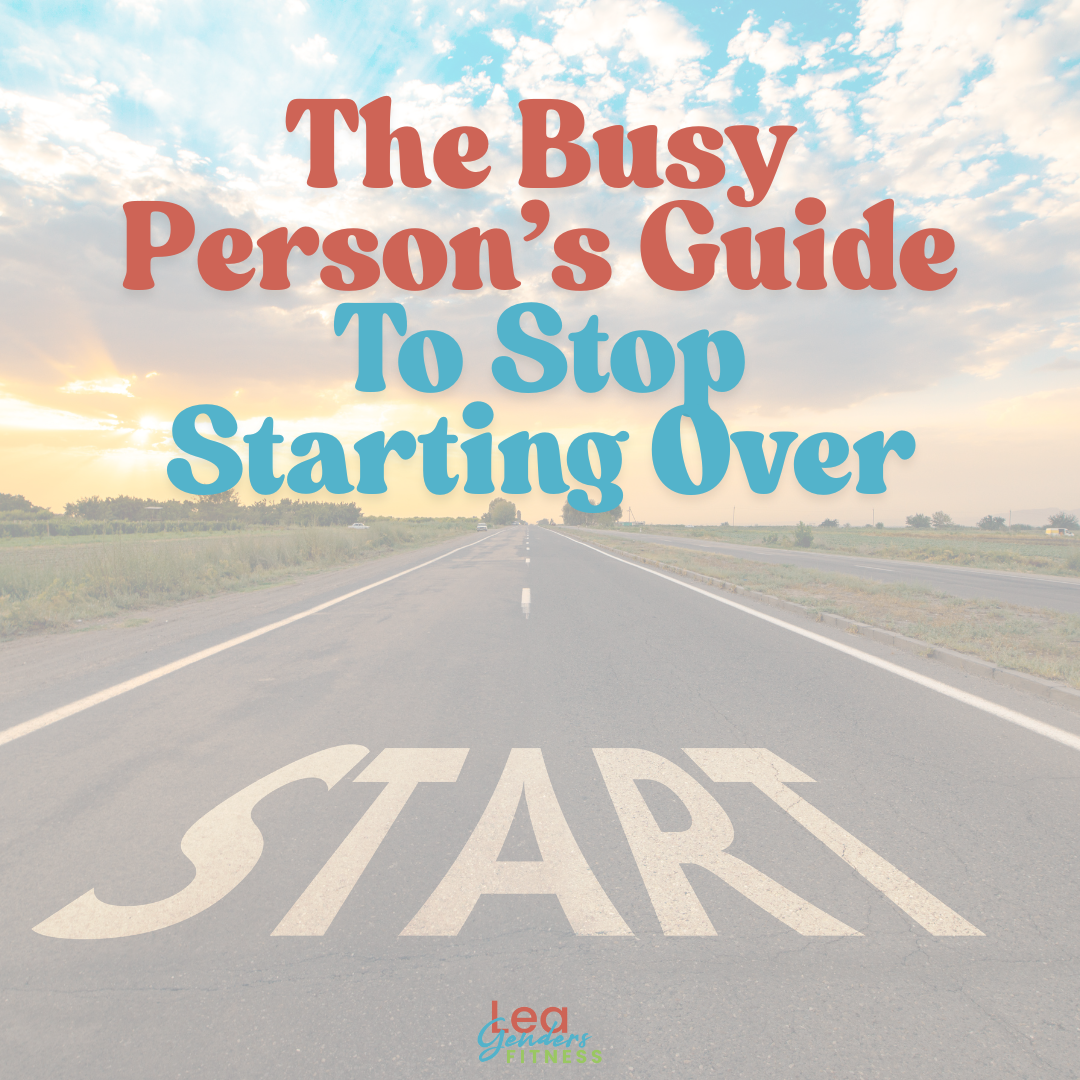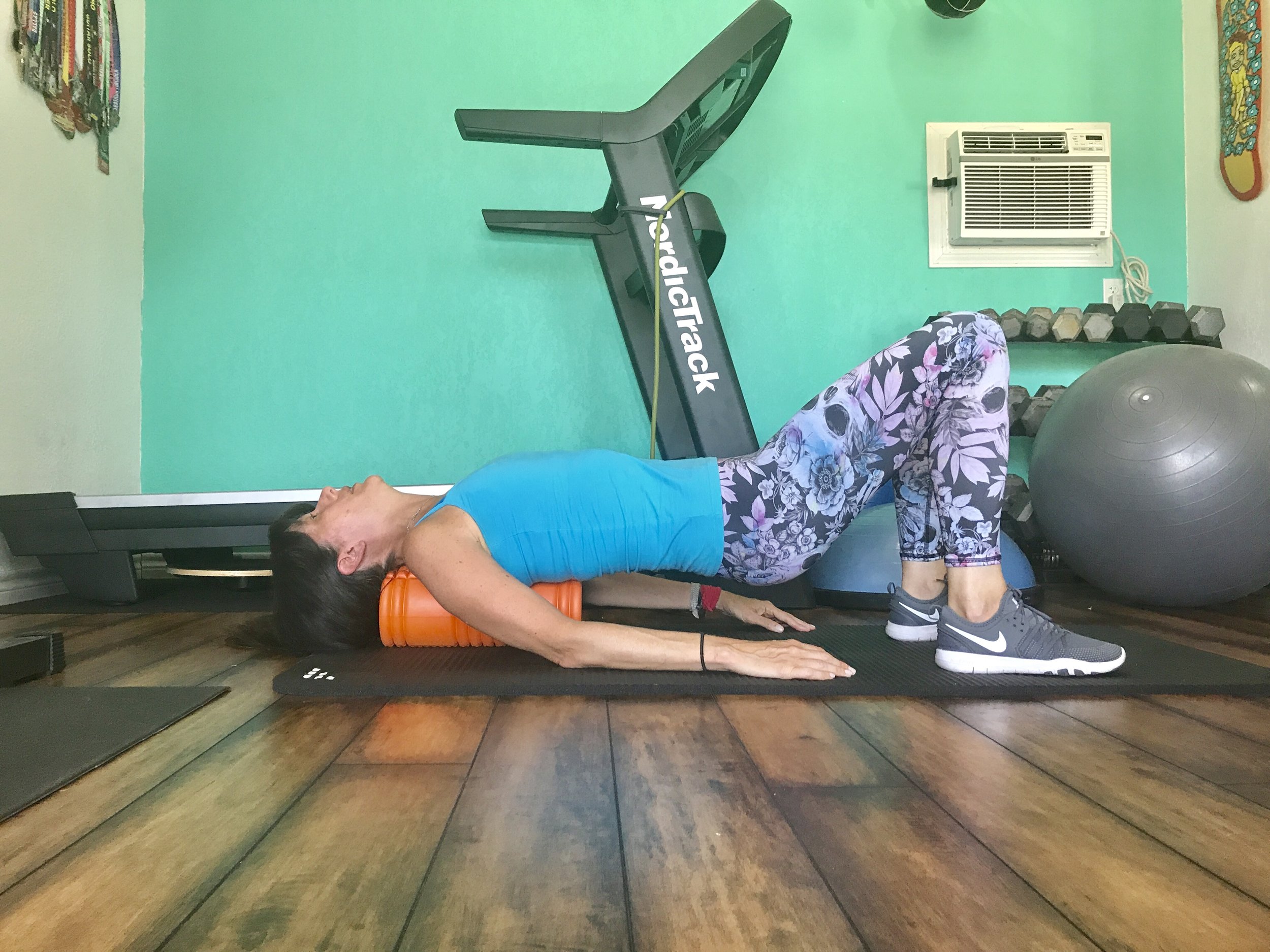Raise your hand if you're busy. Yep. That's just about everyone. We are all busy. If you want to live a healthier lifestyle, the good news is that you don't have get up at 5am to exercise for two hours a day and survive on kale and skinless chicken breast. You don't have to change your whole life to live healthier, rather you can find success by fitting healthier habits into your current (already busy) lifestyle.
5 WAYS TO SET UP YOUR ENVIRONMENT FOR BETTER HEALTH
Whether we like it or not our environment has an impact on our decisions. We can control our environment to a certain extent. We can stay out of bars if we don't want to drink alcohol. We can clean out our cabinets so that only healthy foods are within arm's reach. We can try to spend more time with friends who want to eat healthy and exercise with us.
However, there are always going to be factors that we can't control. Our husbands and kids may not want to eat healthier and beg us to order pizza. We may be chained to a desk eight hours a day while our co-workers try to push us to have that piece of cake. ("Oh, come on, you know you're just going to run it off later anyway"). The healthiest choice in the vending machine is organic Doritos. Spoiler alert: not healthy.
I am not suggesting that you get a divorce, quit your job and give away your kids. We can't always control our environment (and we happen to love those darn kids) but we can learn to navigate it to set ourselves up for better health. It's not about being perfect all the time. That would be impossible. It's doing the best we can in every situation in the life we are already living.
1. ATTACK THE SNACKS
The best defense against poor choices is planning ahead. When you're starving and rushed, you're more likely to hit the drive through, vending machine or deep dive into the ice-cream aisle. I try to keep healthy snacks close at hand. If I always have nuts, seeds, a piece of fruit or a protein shake nearby, I'm less likely to make poor choices because I am hangry.
#TeakFurniture HANGRY Definition Print - UNFRAMED | Kitchen Art | Art Print | Home Decor | Kitchen Wall Art | Office Art | Funny Art | Fuzz… pic.twitter.com/E7XrldY4P6
— John Teak (@finestteak) September 15, 2017
2. THE IDEAL MEAL
How and where you eat your meals has an impact. We usually eat the amount of food that is served to us (or we serve ourselves). I am always reminding hubby of proper serving sizes because he thinks nothing of filling half my plate with buttery sweet potatoes. While I love buttery sweet potatoes, I don't need a half plate of them. I use Precision Nutrition's cupped hand portion serving size as a general guide. Not complaining about hubby cooking and serving dinner though.
If we use smaller plates, we tend to put less food on them and naturally control our serving size. If we finish eating, then wait 15 minutes or so and still feel hungry, we can always eat more. The idea is that we are not mindlessly eating just because it's there. If we serve food on smaller plates, eat slowly and stop when about 80% full (this takes practice) we solve most of our food portion issues.
Sit at an actual table (not of the coffee variety), turn off the TV and put away the phones so you can savor and enjoy your meal. If you work outside of the home during the day, pack a lunch and eat it away from your desk. Sometimes just the act of slowing down and paying attention can yield big results.
3. YOUR KITCHEN MISSION
Clean out your cabinets and remove any foods you have trouble maintaining control over. I usually have to keep salt and vinegar potato chips out of my house. It's not to say you have to get rid of all unhealthy foods, because there is definitely room for treats in your diet. Only keep the foods around that fit within your goals. If you have to get dressed, put on shoes, find your purse, comb your hair, get in your car and drive to the store to buy it, you're less likely to indulge in it when you have a craving a 9pm. Just make it a little harder on yourself to get those types of foods. You can have them when you really want them, just don't make it so easy on yourself.
Sign up for a CSA box so that fresh, healthy produce and/or meat is delivered to you. In Texas (and other states, I hear) we have Bountiful Baskets, a co-op where you can pick-up fresh fruits and veggies for $15 a week that have a retail value of around $50.
Spend time on the weekends prepping and cutting meals and veggies. If necessary, buy pre-cut veggies. If you don't have time to meal prep, sign up for a healthy meal delivery service.
4.PRACTICE BEING ACTIVE
No matter how much or how little you workout each week, you can set your environment up to get more activity in throughout the day. Remember, it all counts. It doesn't have to be structured exercise to have an impact.
Park your car in the farthest spot away from the entrance of school, work and the grocery store so that you have to walk. Ride your bike or walk instead of driving to places that are nearby.
Do squats while you brush your teeth or incline pushups against the kitchen counter while waiting for the microwave to ding. Do a four minute tabata workout when you get out of bed in the morning to kick your day off on the right foot. It all counts. I promise.
5. FIND FIT-MINDED FRIENDS
Join a run club or active social group to find a workout buddy. Find like-minded people who are interested in their health, fitness, and nutrition. Ever hear of November Project? Just show up. Organize your social events around being active; go for a walk, run or hike instead of meeting up at a restaurant or bar. Find friends to sign up for an obstacle race or fun 5K with you. Join an adult soccer league. Whatever floats your boat. Hey, good idea. Go swimming off of a boat! When exercise hour becomes social hour to catch up with friends, the more likely you'll do it.
A four-legged furry fit friend can be the best kind. Get a dog that needs a daily walk. Can't have a dog? Borrow from a neighbor or volunteer to run with shelter dogs. I guarantee they will love you for it.
You don't have to overhaul your whole life to live healthier. Use this healthy lifestyle guide to help you incorporate new healthy habits into your busy day. You're never going to be less busy, start making small changes today.
Like this post? An angel earns its wings every time you share.




























When progress feels slow or uncomfortable, it’s tempting to chase something shiny: a new diet, a new plan, a total overhaul. But what if the problem isn’t your plan? What if it’s just the part where it gets hard? In this post, I’m sharing the simple mindset trick I use to stay focused when distractions pop up, and how the same approach can help you stop starting over in your health and fitness goals.